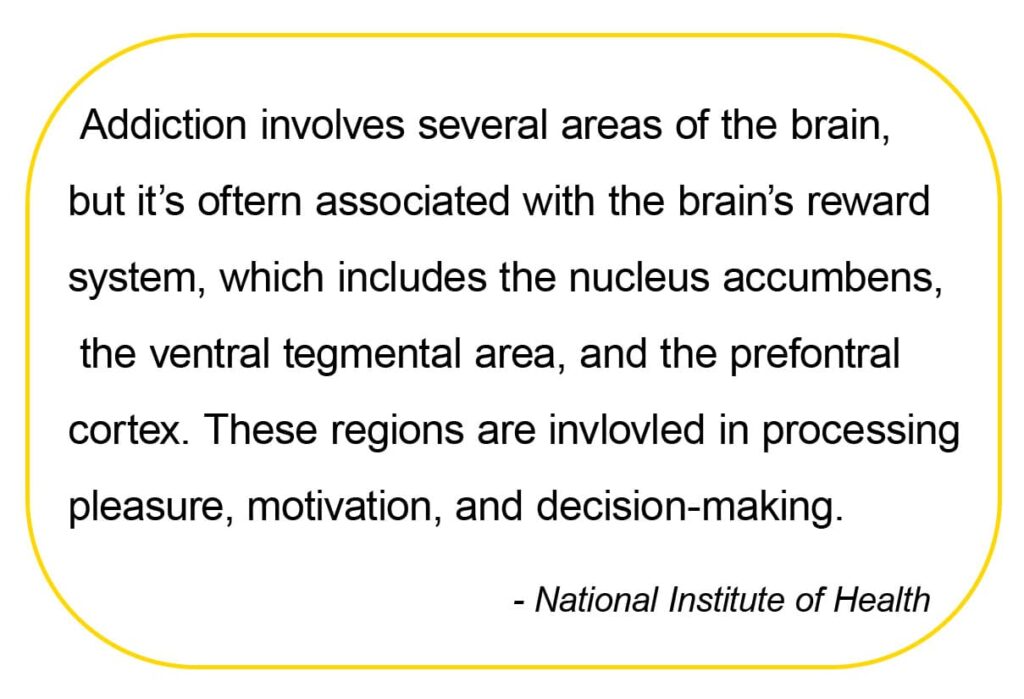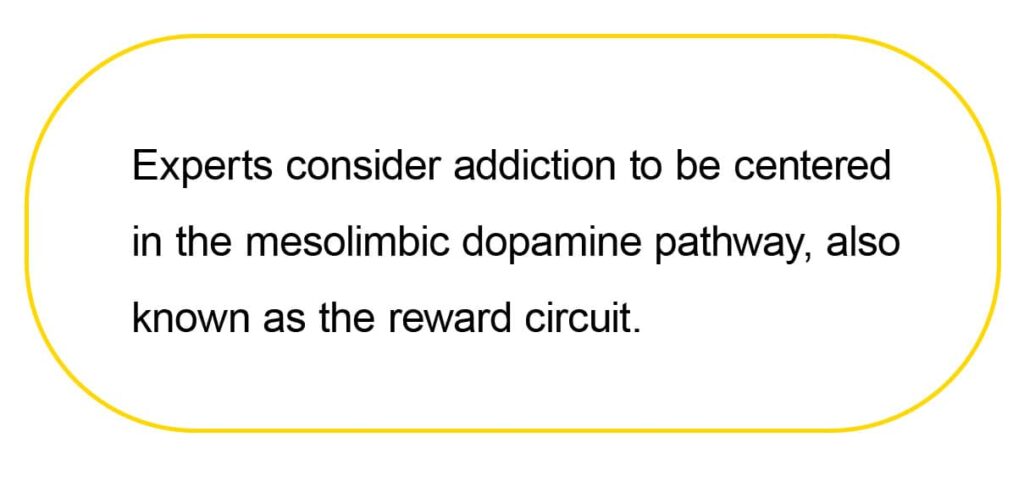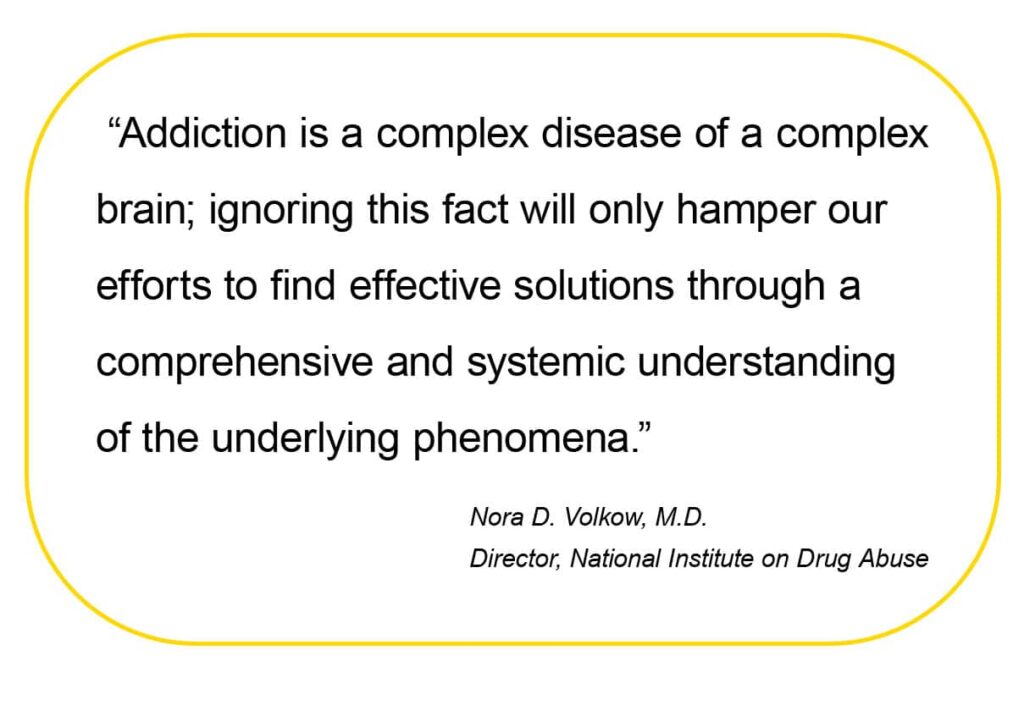Addiction, once perceived solely as a moral failing or lack of willpower, has undergone a paradigm shift in recent years. Scientific research has unveiled a complex interplay of neurobiological mechanisms underlying addictive behaviors, leading to a fundamental redefinition of addiction as a brain disorder. This article aims to explore addiction from this perspective, elucidating the neural underpinnings of addictive behaviors and their implications for treatment and societal perception.

Traditionally, addiction was often viewed through a moral or behavioral lens, characterized by notions of weakness or immorality. However, the neuroscientific understanding of addiction challenges these perceptions, highlighting its classification as a brain disorder and a form of mental illness. This reconceptualization emphasizes the role of neurobiology in driving addictive behaviors, shifting the focus from moral judgment to compassionate understanding.
Chronic drug use exerts profound effects on the brain’s reward circuitry, hijacking its natural mechanisms for reinforcing adaptive behaviors. Drugs of abuse, such as opioids, cocaine, and alcohol, stimulate the release of dopamine, a neurotransmitter associated with pleasure and reward, in quantities far exceeding those produced by natural rewards. This flood of dopamine alters the brain’s reward pathways, leading to heightened sensitivity to drug-related cues and diminished responsiveness to natural rewards.
The prefrontal cortex, a critical brain region involved in decision-making, impulse control, and judgment, is particularly vulnerable to the effects of addiction. Prolonged drug use disrupts prefrontal cortical functioning, impairing cognitive processes essential for self-regulation and goal-directed behavior. Consequently, individuals with addiction may exhibit impaired judgment, diminished impulse control, and difficulty in weighing the long-term consequences of their actions.

A hallmark of addiction is the presence of distorted thinking patterns, characterized by rationalization, minimization of consequences, and blame-shifting. These cognitive distortions serve to perpetuate addictive behaviors, reinforcing the individual’s belief in the necessity or inevitability of drug use. Moreover, addiction is characterized by compulsive drug-seeking behaviors driven by changes in the brain’s neural circuitry, leading to a pervasive sense of urgency and impulsivity.
Addiction exacts a significant toll on multiple domains of an individual’s life, resulting in functional impairment in areas such as relationships, employment, and social functioning. The relentless pursuit of drugs, despite adverse consequences, underscores the profound disruption of neurobiological processes underlying addiction. Intense cravings, a hallmark feature of addiction, can overwhelm cognitive control mechanisms, compelling individuals to prioritize drug-seeking behavior over other needs or obligations.

While initial drug use may be a voluntary choice, the progression of addiction is marked by a loss of control over drug use. The compulsive nature of addiction renders individuals unable to abstain from drug use, even in the face of mounting negative consequences. Furthermore, addiction frequently coexists with other mental health disorders, such as depression, anxiety, and post-traumatic stress disorder (PTSD), exacerbating the complexity of clinical management and treatment.
The recognition of addiction as a brain disorder has profound implications for treatment approaches and societal attitudes towards individuals grappling with addiction. By reframing addiction as a neurobiological phenomenon, we can adopt a more compassionate and evidence-based approach to addiction treatment, emphasizing holistic interventions that target both the neural and behavioral aspects of addiction. Moreover, addressing the stigma surrounding addiction as a brain disorder is crucial for fostering empathy and support for those affected by this pervasive public health issue.
References
Volkow, N. D., & Morales, M. (2015). The Brain on Drugs: From Reward to Addiction. Cell, 162(4), 712–725. doi:10.1016/j.cell.2015.07.046
Goldstein, R. Z., & Volkow, N. D. (2011). Dysfunction of the prefrontal cortex in addiction: neuroimaging findings and clinical implications. Nature Reviews Neuroscience, 12(11), 652–669. doi:10.1038/nrn3119
Koob, G. F., & Volkow, N. D. (2016). Neurobiology of addiction: a neurocircuitry analysis. The Lancet Psychiatry, 3(8), 760–773. doi:10.1016/S2215-0366(16)00104-8
Addiction Gap is a certified 501(c)(3) nonprofit
